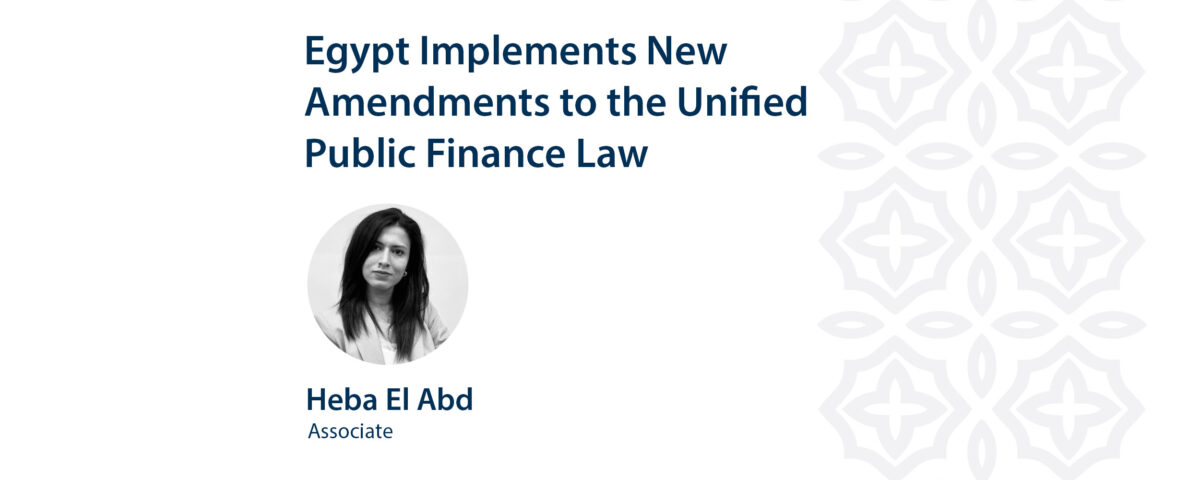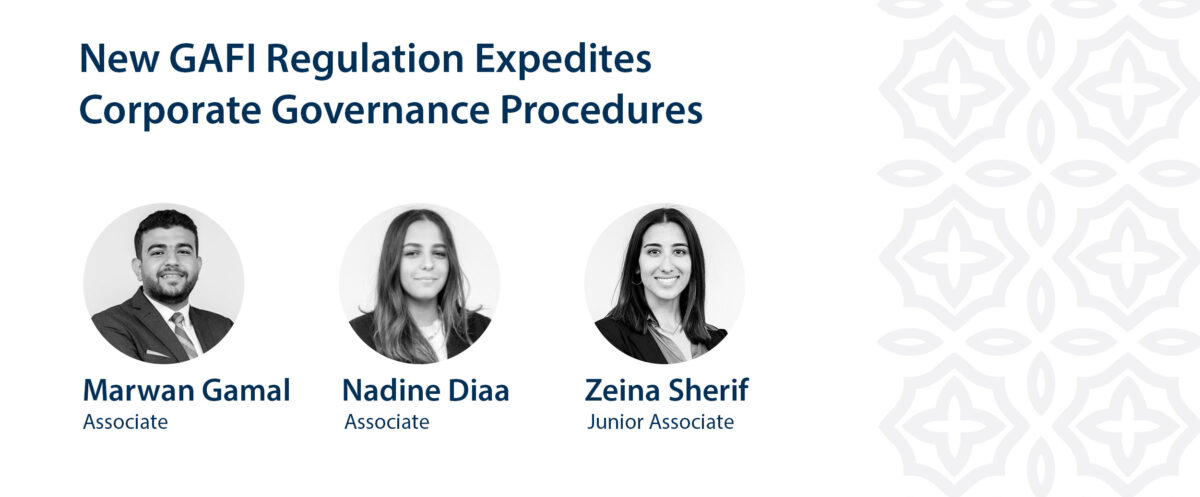
Egypt is one of the three largest economies in Africa and is strategically positioned at a crossroads between the East and West, making the country a significant player in international trade in the Middle East and Africa region. Egypt is home to the Suez Canal which connects the Mediterranean Sea with the Red Sea and is a key artery in global trade.
The total area of Egypt is 1,001,450 square kilometers including 995,450 square kilometres of land and 6,000 square kilometres of water. According to the Egyptian Central Agency for Public Mobilization and Statistics, the population reached more than 100 million people in 2019. Egypt is divided into 27 governorates, 217 cities and 4617 villages. Governorates with the highest population are Cairo (10.8%), Giza (8.6%) and Sharqiyya (7.4%).
The Egyptian legal system is primarily based on the French civil legal system, various other European codes and religious law. In practice, religious law is applied only to personal and family matters which are governed by the religious law of the individual concerned. The keystone of Egyptian law is the Constitution, which was passed in a referendum in January 2014 and amended in April 2019 (the Constitution).
Investment Outlook:
The Egyptian government has been working so hard to attract more Foreign Direct Investment (FDI) to the country and these efforts resulted in recognizing Egypt as one of the top five (5) destinations globally for greenfield FDI in 2016.
According to the latest fDi Report 2020 issued by fDi Intelligence, “Egypt replaced South Africa as the second ranked destination by projects in the region, experiencing a 60% increase from 85 to 136 projects”. This ranking cover both Middle East and Africa regions.
Furthermore, Egypt managed also to be on top of all ranked countries in the Middle East and Africa regions by capital investment in 2019 by acquiring 12% capital investment with a total value of $13.7 billion.
The majority of this investment came in the energy, construction and transportation sectors.
The government is in the process of completing a number of “mega projects” including, inter alia, (i) the new Administrative Capital, the first phase’s total space of approximately 44.1 square kilometres with a total construction value of 20 billion Egyptian Pounds (EGP), which is equal to approximately US$1.2 billion; (ii) a new EGP 4.4 billion line for the third phase of the metro, the fourth phase of the metro with a total value of USD 1.2 billion and the first skytrain with a total value of USD 1.5 billion; (iii) Zohr gas field, which is the largest ever natural gas find in the Mediterranean Sea; (iv) Benban Solar Park, which is a photovoltaic power station under construction with a planned total capacity of 1650 MWp and will be the largest solar installation in the world; and (v) El Dabaa Nuclear Power Plant, which is the first nuclear power plant planned for Egypt.
Soliman, Hashish & Partners is proud of taking a part of four (4) projects of the mega projects that are mentioned above by representing (i) one of the world’s largest technology companies in implementing the IT infrastructure of Phase I of the New Administrative Capita; (ii) one of the world’s largest energy company in the implementation of solar power plants in Benban Solar Park; (iii) one of the largest European transportation companies in the implementation of the fourth phase of the metro; and (iv) one of the world’s largest energy company in participating in the construction of El Dabaa Nuclear Power Plant.
The Government has been busy with proposing key amendments to the investment-related laws since more than four (4) years, and the Government succeeded in obtaining the approval of the Parliament to a number of new key laws such as Industrial Licenses Law No. 21 of 1958, Value Added Tax Law No. 67 of 2016 (the “VAT Law”), Foods Safety Law No. 1 of 2017 and finally the Investment Law No. 72 of 2017 (the “Investment Law”).
Corporate Structures:
There is a number of laws governing doing business in Egypt including, inter alia, (i) the Trade Code No. 17 of 1999 (the “Trade Code”); (ii) the Companies Law No. 159 of 1981 (the “Companies Law”) and the Executive Regulation thereof; (iii) the Investment Law No. 72 of 2017 (the “Investment Law”); and (iv) the Commercial Registry Law No. 34 of 1976 (the “Commercial Registry Law”).
The Companies law and Trade Code provide several legal forms of businesses similar to those legal forms that are available in North Africa and Europe.
Non-Egyptian investors have a number of alternatives to plan for or start business in the Egyptian market as follows:
For pre-investment:
Non-Egyptian investors are entitled by virtue of the Companies Law to open a representative office in Egypt for the purpose of studying the Egyptian market and/or potentials of productions.
However, representative offices are not allowed throughout their operation in Egypt to do any kind of business.
For direct investment:
Non-Egyptian investors may establish any of the following types of companies for doing business in the Egyptian Market:
Branch of foreign company:
The Companies Law allows non-Egyptian companies to open their branches in Egypt in order to perform works of contractual nature. However, the said branch must be registered with the competent Commercial Registration Office, which registration usually takes up to three (3) working days.
In order for a foreign company to open a branch in Egypt, such foreign company must be awarded a contract, such as a construction contract, for carry out specific scope of work in Egypt.
The foreign company must also appoint a manager of any nationality thereof to represent the said foreign company in Egypt.
Joint Stock Company (“JSC”):
The Companies Law allows non-Egyptian investors to incorporate JSC, which resembles a U.S. corporation or a French societe anonyme.
The incorporation of a non-publicly listed JSC requires a minimum of three (3) founders and a minimum capital of EGP 250,000.
In general, there are no restrictions on the nationality of the founders.
Subscribers are obliged to subscribe to 10% of the issued capital during the formation process of a JSC and subscription should reach 25% during the three (3) months after formation thereof. The remaining unpaid capital should be subscribed within a period of five (5) years.
JSC must be managed by a Board of Directors, which Board must compose of at least three (3) members of any nationality.
A Limited Liability Company (“LLC”):
LLC corresponds to the French societe a responsibilite limitee (S.A.R.L.), is like an incorporated partnership or a U.S. closed corporation or a British private limited company.
There is no minimum capital required under Egyptian law with respect to the incorporation of LLC. However, the issued capital of LLC shall be paid in full upon application for incorporation.
The establishment of a LLC requires a minimum of two (2) partners and up to a maximum of fifty (50) partners. Furthermore, there are no restrictions on the nationality of the partners.
LLC may be managed by one manager of any nationality.
Finally, LLC shall in general comply with the same provisions of Corporate Governance that apply to JSC.
One Person Company (“OPC”):
Some of the recent amendments made to the Companies Law introduced the OPC for the first time in Egypt, which can simply be owned by either a natural or juristic person.
OPC’s name may be diverted from either the purpose thereof or the name of its sole shareholder.
OPC is not allowed to carry out any of the following:
- incorporate another OPC.
- Public Offering.
- Dividing its share capital into transferable shares.
- Receiving finance by way of issuing bonds.
- same as LLCs, any business activities related to insurance, banking, savings, receiving funds and investment management.








